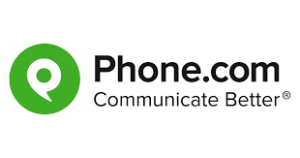12 Best Business Phone Services
Choosing the right business phone service is crucial for any company. The best options blend reliability, features, and cost-effectiveness to enhance communication. Many services now offer advanced features like voicemail, call forwarding, and conference calling that meet the needs of businesses of any size.
Quick List: Best Business Phone Services
- Grasshopper
- Nextiva
- RingCentral
- Zoom Phone
- Ooma
- Phone.com Virtual Office
- FreedomVoice
- Dialpad
- GoTo Connect
- Aircall
- OpenPhone
- CallHippo
Business phone services play a significant role in maintaining professional connections. They allow teams to communicate efficiently while ensuring customers receive timely responses. With so many choices available, it can be difficult to find the perfect fit.
This article explores the top business phone services that can help companies thrive. It highlights features that stand out and considerations that can help make the right decision. Readers will learn what to look for when selecting a service that supports their business needs.
Understanding Business Phone Services
Business phone services play a crucial role in communication, especially for those involved in high-ticket dropshipping and e-commerce. Choosing the right service can greatly enhance customer relationships and streamline operations.
The Role in High Ticket Dropshipping
Effective communication is key in high-ticket dropshipping. Businesses rely on phone systems to handle customer inquiries, process orders, and resolve issues promptly.
Features like call forwarding, voicemail to email, and automated call distribution are essential. These tools help connect customers with sales representatives quickly.
Having a reliable phone service can build trust. When customers can easily reach a business, they are more likely to make large purchases. Clear communication can address concerns and solidify buyer confidence.
Impact on Ecommerce
For ecommerce businesses, phone services support various functions. Customer support can directly influence sales. Many customers prefer speaking to a representative rather than relying solely on chatbots or emails.
Features like interactive voice response (IVR) allow businesses to manage calls efficiently. Screening calls can prioritize urgent inquiries or high-value clients.
Using phone services can enhance marketing efforts too. For instance, collecting feedback via phone calls can improve products or services. Engaging with customers directly often leads to better customer satisfaction and loyalty.
Choosing the Right Business Phone Service
Selecting the right business phone service is crucial. Key factors include scalability and how well the service fits with existing tools.
Scalability and Flexibility
Scalability is essential for businesses that expect to grow. A good phone service should allow easy additions or changes to phone lines as needed.
Businesses should look for services that offer:
- VoIP capabilities: This allows phone services to expand without much investment.
- Flexible plans: Look for plans that change with business needs, such as seasonal usage.
Understanding future needs helps choose a service that won’t require constant updates. Services like RingCentral or Nextiva provide options for small to large businesses, to adapt as they grow.
Integration with Current Infrastructure
A phone service should work well with the tools a business already uses. Integration can make communication smoother and improve productivity.
Consider the following when choosing:
- CRM integration: Connecting phone services to customer relationship management systems streamlines customer interactions.
- Email and calendar syncing: Compatibility with these tools can enhance scheduling and communication.
Services like 8×8 and Grasshopper often offer features that integrate easily with existing business systems. This helps avoid disruptions and keeps all communication channels connected.
Top Business Phone Service Providers
Choosing the right business phone service provider can greatly impact communication efficiency. Various companies offer unique features that cater to different business needs. Here are key details about some of the top providers in the market.
Grasshopper

Grasshopper is a virtual phone service for small businesses, offering a professional image with features like toll-free numbers, call forwarding, voicemail transcription, and custom greetings. Easy to set up without hardware, it lets users manage calls from mobile devices or computers. With transparent pricing and flexibility, Grasshopper is ideal for entrepreneurs seeking a simple yet professional communication solution.
Click here to start your free trial with Grasshopper today!
Nextiva

Nextiva provides unified communication solutions that combine voice, messaging, and video conferencing for seamless team collaboration. Features like call recording, analytics, and team tools are easy to use and scalable to fit businesses of any size. With top-notch customer support and flexible pricing tiers, Nextiva is a versatile choice for growing organizations.
RingCentral
![]()
RingCentral is a robust cloud-based phone system offering voice, video, and messaging with HD video conferencing, integrations, and strong security. Accessible across devices, it supports mobility and customization, making it ideal for businesses needing efficient communication tools. Its diverse pricing plans cater to various budgets and organizational needs.
Zoom Phone

Zoom Phone extends the Zoom platform by combining voice services with video meeting capabilities. It includes features like call recording, voicemail, and a mobile app, with competitive pricing for businesses of all sizes. Especially valuable for Zoom users, it fosters seamless collaboration and a cohesive communication strategy.
Ooma

Ooma offers reliable and affordable phone services for small to medium-sized businesses, featuring a mobile app, virtual receptionist, call analytics, and video conferencing. With a simple pricing structure and no contracts, Ooma is a flexible option for cost-conscious businesses seeking robust functionality and dependable customer support.
Phone.com Virtual Office

Phone.com provides flexible communication solutions tailored to small and medium-sized businesses. It offers a virtual phone system with features like voicemail-to-email, call forwarding, and conferencing. Their affordable pricing plans are ideal for startups looking to minimize costs while maximizing functionality.
FreedomVoice

FreedomVoice specializes in cloud-based phone systems for small businesses. It provides toll-free numbers, custom greetings, and voicemail transcription. The platform is designed for easy setup and management, ensuring quick integration with business operations.
Dialpad

Dialpad is an AI-powered phone service designed for modern workplaces. It includes features like voice intelligence, call analytics, and seamless integration with tools like Google Workspace and Microsoft 365. The mobile-friendly interface ensures on-the-go accessibility.
GoTo Connect

GoTo Connect combines VoIP calling, messaging, and video conferencing in one platform. It offers features like auto attendants, call recording, and integrations with CRMs. The service is scalable, making it suitable for businesses of all sizes.
Aircall

Aircall is a cloud-based phone system with a focus on customer-facing teams. It includes call routing, analytics, and easy integration with the help desk and CRM software. Aircall’s intuitive design and quick setup make it a favorite among sales and support teams.
OpenPhone

OpenPhone is a streamlined business phone service that integrates with Slack and HubSpot. It offers features like call recording, voicemail-to-text, and multiple numbers on one device. OpenPhone is ideal for startups and small teams looking for simplicity and collaboration.
CallHippo

CallHippo is a virtual phone system offering a wide range of features, including call analytics, team collaboration tools, and integration with over 100 software platforms. It is designed to improve customer communication and streamline team workflows.
Advanced Features of Business Phone Systems
Business phone systems offer various advanced features that enhance communication and increase productivity. Key functionalities such as virtual receptionists, mobile apps, and reliable VoIP services create a more efficient working environment.
Virtual Receptionists
A virtual receptionist can handle incoming calls for businesses at all times. This feature manages calls by answering, directing, and taking messages without the need for a physical receptionist.
- 24/7 Availability: Ensures that clients can reach the business anytime.
- Personalized Greetings: Provides a professional image by using custom scripts for different callers.
- Call Screening: Allows businesses to prioritize important calls and manage fewer urgent ones.
This capability is essential for small businesses that need a professional touch without the added costs of hiring additional staff.
Mobile Apps and Smartphones
Mobile apps and smartphones allow users to make and receive calls on their devices. This feature is crucial for businesses with remote employees or those who travel frequently.
- Flexibility: Employees can work from anywhere, accessing the same features as in-office systems.
- Cost-Effective: Reduces the need for separate phone lines, saving money.
- Unified Communication: Integrates calls, messages, and video conferencing into one platform.
These capabilities ensure that teams stay connected, contributing to smooth operations and improved collaboration.
VoIP and Internet Reliability
VoIP (Voice over Internet Protocol) is vital for modern business communication. This technology converts voice into digital signals for transmission over the internet, often providing clearer calls.
- Cost Savings: VoIP services typically reduce phone bills compared to traditional landlines.
- Scalability: Businesses can easily add or remove lines as they grow.
- Dependable Internet Connectivity: A stable internet connection is crucial. High-speed internet ensures quality calls with minimal interruptions.
This technology is key for businesses aiming to enhance communication while managing costs effectively.
Cost Analysis of Business Phone Solutions
When evaluating business phone services, the cost is a significant factor. This analysis breaks down initial investment, ongoing expenses, and pricing plans, helping businesses see how costs can vary greatly.
Initial Investment
The initial investment includes the cost of hardware and setup. Businesses often face costs for phones, headsets, and possibly a new phone system. Depending on the service, prices for hardware can range from $50 to $300 per phone.
Some providers include hardware in their packages, while others charge separately. There may also be installation fees, especially for on-premise systems. Companies might spend anywhere from $200 to $1,000 for installation, depending on complexity.
Choosing cloud-based solutions can lower initial costs. These services usually require less hardware, as many features are offered through software. This can help a business save money right from the start.
Ongoing Expenses
Ongoing expenses cover service fees, maintenance, and potential upgrades. Based on features, monthly service costs typically range from $20 to $100 per line. For example, VoIP services provide tools like call forwarding and voicemail, often at a lower cost than traditional lines.
Businesses should also consider maintenance costs. Premium services often include support, but basic packages might require additional fees for help. Regular upgrades could also arise depending on the technology used.
Internet costs may also increase, especially with VoIP services. A good internet plan is essential, often adding $50 to $100 monthly. Those expenses must be included in any budget for phone services.
Comparing Pricing Plans
Pricing plans can vary by provider and features offered. Most companies offer tiered pricing based on the needs of the business. Basic plans might exclude advanced features, while premium options may provide comprehensive services.
Here are a few comparisons of popular business phone services:
| Provider | Basic Plan | Premium Plan |
|---|---|---|
| Service A | $25/mo | $70/mo |
| Service B | $30/mo | $85/mo |
| Service C | $20/mo | $60/mo |
Businesses should assess their specific needs before choosing a plan. This can help ensure they pay for only what they need. Comparing multiple offers can reveal the most cost-effective solutions available.
Implementation and Training
Implementing a business phone service requires careful planning and effective training. Understanding the setup process and developing employee training programs are critical for a smooth transition.
Setup Process and Time
The setup process for business phone services varies by provider. Most companies can complete installation in a few hours to a few days.
Key steps include:
- Choosing Equipment: Select compatible devices like phones and headsets.
- Configuration: Configure settings and features based on business needs.
- Testing: Run tests to ensure the system works correctly.
Providers like RingCentral and Vonage often streamline this process. They may offer online resources or guided setups. Time frames can change based on the complexity of the needs. Businesses should plan for potential delays to avoid disruptions.
Employee Training Programs
Training employees on new phone systems is essential for maximizing productivity. Start by identifying the level of training needed. Some employees may require more help than others.
Effective training programs should include:
- Hands-On Sessions: Allow employees to practice using the phones.
- Online Tutorials: Provide access to video tutorials.
- Q&A Sessions: Create times for employees to ask questions.
Companies like 8×8 and Grasshopper often provide training materials to help. It is vital to monitor progress and gather feedback. Ongoing support can assist with any challenges that arise during daily use.
Customer Support and Service Reliability
Reliable customer support and service dependability are critical for businesses using phone services. Companies look for quick assistance and minimal service interruptions. These factors can greatly affect productivity and communication.
Availability and Responsiveness
Good phone service providers offer 24/7 support. This means they can help customers any time they face problems. Quick response times also matter. Businesses need answers without long waits. Many top services provide multiple ways to reach support, such as:
- Phone support
- Email assistance
- Live chat options
Some services even have dedicated account managers for larger businesses. This ensures personalized help. A quick response can mean the difference between resolving issues swiftly or facing long downtimes.
Service Downtime and Issue Resolution
Service downtime can disrupt business operations. Leading phone services strive to have minimal downtime. It is essential to check a provider’s track record for service outages. Strong providers often share their uptime percentages to build trust.
When issues arise, a fast resolution process is key. Look for:
- Clear support channels
- User-friendly troubleshooting guides
- Regular updates during outages
This information helps users stay informed. Active communication from providers during issues shows they value their customers. Efficient issue resolution can enhance the overall experience for businesses.
The Future of Business Communication
The way businesses communicate is changing quickly. New technologies and methods are shaping how companies interact with customers and each other. Two significant areas are emerging trends in communication and the use of artificial intelligence.
Emerging Trends
Remote work is here to stay. Many companies are adopting cloud-based communication tools. This allows teams to connect from anywhere, making collaboration easier. Tools like Zoom, Microsoft Teams, and Slack are gaining popularity. They offer video calls, instant messaging, and file sharing all in one place.
In addition, businesses are focusing on omnichannel communication. This means using multiple channels like social media, email, and phone for customer interactions. Customers expect a seamless experience regardless of how they reach out. Companies must adapt to these preferences to stay competitive.
Adoption of AI Technologies
AI technologies are becoming key in business communication. Chatbots are increasingly used for customer service. They handle common questions, providing quick answers without human help. This improves response time and customer satisfaction.
Moreover, AI can analyze communication patterns. It helps companies adapt to client needs more effectively. For example, predictive analytics can suggest the best times to contact clients. This makes interactions more targeted and efficient.
AI technologies are also enhancing security in communication. With better encryption and fraud detection, businesses protect sensitive information during interactions. These advancements make AI an essential part of future business communication strategies.
Conclusion
Choosing the right business phone service is crucial for success. Numerous options are available, each with unique features.
For example, RingCentral offers robust cloud solutions and excellent customer service. Grasshopper is perfect for small businesses needing a budget-friendly option with essential features.
Nextiva stands out due to its integrated tools that enhance communication.
Each service meets different needs. Businesses should consider their size, budget, and required features when selecting a service.
Looking at customer reviews and comparisons can help make an informed decision. Testing free trials is also a useful way to assess what fits best.
Investing in the right phone service can improve communication and productivity. Making an informed choice ensures businesses can respond effectively to their customers.
